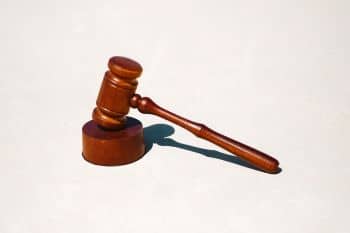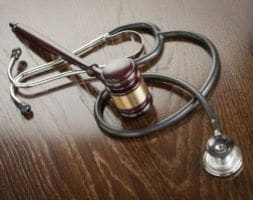In What Ways Might Your Dentist be Negligent?

If you’ve been to the dental surgery and received poor or incorrect treatment from your dentist, you’re a victim of dental negligence. To find out more, read on…

Being a victim of any kind of medical negligence is awful, and dental negligence is no different. If the treatment you received has affected your life in any way you can claim compensation from a negligent dentist to make the road to recovery easier for you. This can help with affording to pay for any subsequent treatment further down the line.
In this post, we’re going to discuss the ways in which a dentist can be negligent and why you might choose to sue them for it. Then, we’ll discuss how COVID-19 has affected dental care over the past year and a half.
What is Dental Negligence?
Before we get into the ways in which a dentist can be negligent, we’re going to give you a brief outline of what dental negligence is.
Dental negligence covers any type of injury caused, made worse, or overlooked by your dentist. If their negligent treatment has caused you avoidable harm you might be able to make a dental negligence claim.
This harm could be physical damage, harm to your wellbeing, or financial loss from not being able to work or having to pay for further corrective surgery.
In What Ways Can Your Dentist be Negligent?
Now that we’ve got the definitions out of the way, it’s time to look at how your dentist can be negligent.

It might not seem like there are many ways in which a dentist can be negligent, especially when compared to a medical doctor or surgeon. That said, there are a lot more than you might think.
Here are some of the most common ways dental negligence can occur:
- Nerve damage
- Infection
- Damage or facial malformation following cosmetic treatment
- Incorrectly administered anesthetic
- Failure to diagnose dental conditions properly
- Failure to treat dental conditions effectively
- Failed implants
- Poorly positioned implants
- Removing too much enamel when fitting veneers
- Inadequate root canal treatment
- Inadequate crowns
- Inadequate fillings
- Extracting the wrong tooth
- Failure to manage tooth decay
- Failing to manage gum disease
- Incorrect use of whitening chemicals
- Poor orthodontics
This list is by no means extensive, but should give you some idea of how many ways a dentist can provide negligent treatment to their patients.
What Are the Reasons for Suing a Negligent Dentist?
So, we now know how a dentist can be negligent, but why would you sue them for it? Isn’t it enough that they made a mistake and have apologized for their mistreatment?
That would be the caring thing to do in most other situations. However, when it comes to negligent medical care, compensation is often the only way to right the wrong that’s been done.
The main reasons people sue for negligent dental care are:
- For misdiagnosis, late diagnosis or failure to diagnose a condition which results in avoidable injury, pain or suffering to the patient.
- For injury caused by poorly executed dental procedures or carelessness which results in avoidable injury, pain or suffering to the patient.
- For financial loss as a result of paying for corrective treatment due to negligent medical care.
- For loss of earnings if the negligent dental care received has impaired the patient’s ability to work.
- For physical and psychological trauma brought about as a result of negligent dental care.
As you can see from the above list, it’s only fair that you receive compensation for dental work that has caused you pain or injury, especially when this results in financial loss and loss of earnings.
How Do You Prove Your Dentist was Negligent?

It’s all well and good having the moral justification, and legal precedent, for your dental negligence lawsuit, but it doesn’t mean anything if you don’t have proof. In order to substantiate your claim, you need to prove the following things:
- Breach: you have to show how the dentist breached their duty by falling below the expected standard of care. The standard is a measurement of dentist’s reasonable average skill level.
- Causation: you have to demonstrate that the dentist’s breach of duty caused you direct harm.
- Damages: you have to prove that you suffered harm as a result of your dentist’s breach of care. If you haven’t suffered any harm but your dentist was blatantly careless, it would be very difficult to claim dental negligence.
If you can prove all of the above, you should be in a good position to make a claim for dental negligence.
Has COVID-19 Exacerbated Dental Problems?
Now that we know what dental negligence is, how a dentist can be negligent and why you might want to sue them, it’s time to look at how dental care has been doing in the age of COVID-19.
Since COVID-19 started in March 2020, more people are being affected by delayed diagnosis of gum disease and tooth decay, both of which are preventable conditions if they’re spotted by your dentist. If left untreated, these conditions can be catastrophic for the sufferer.
In the UK, the health and social care watchdog, Healthwatch England, released a report stating that there had been a 452 percent rise in complaints about dental experiences between July and September 2020.
These complaints were likely due to patients not having access to routine and emergency dental care due to limited appointments during COVID-19. The lack of routine appointments will have had the most impact on the increase in gum disease and tooth decay.
On top of those cases, oral cancer referrals are down a third compared to the usual 22 cases spotted each day in previous years. Overall, it looks like dental negligence claims will increase in the years to come.
Should You Sue Your Dentist for Negligent Care?
In this post, we’ve managed to cover what dental negligence is, the ways in which a dentist can be negligent, and the reasons for suing a dentist. We’ve also touched upon how dental negligence has been exacerbated by COVID-19.
It’s completely up to you whether you sue your dentist for negligence. You’re well within your rights to sue them for injury, and if you’ve suffered financial loss as a result of the injury, you should definitely make a claim to help you through it. Just be sure to seek the advice of lawyer to see if your claim is reasonable.




